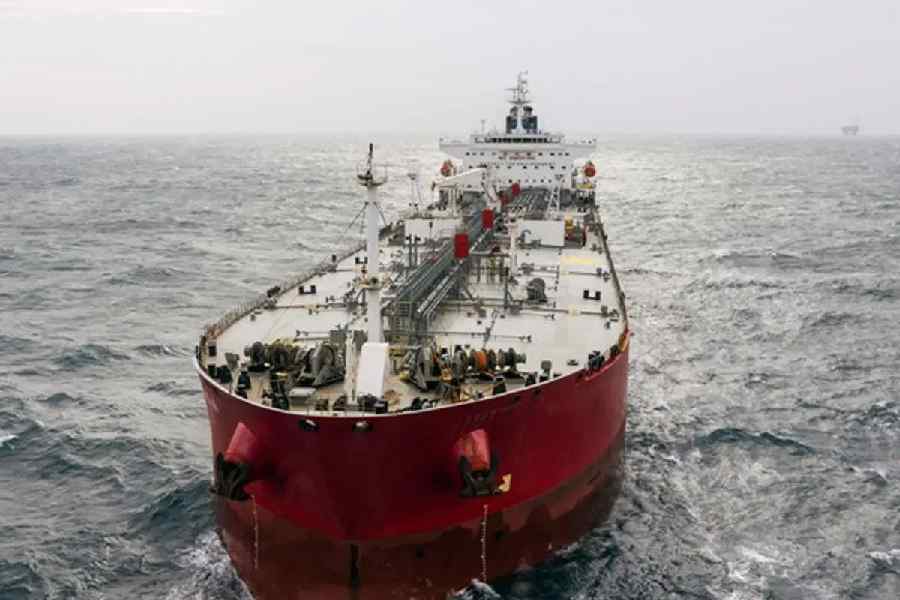India, the world's third largest oil consuming and importing nation, in July bought USD 2.8 billion worth of crude oil from Russia, second only to China which remains the largest importer of Russian oil, a report said.
Russia emerged as India's biggest supplier of crude oil, which is converted into fuels like petrol and diesel in refineries, after Russian oil was available on discount following some European nations shunning purchases from Moscow over its invasion of Ukraine in February 2022.
Imports from Russia, which were less than one per cent of the total oil imported in pre-Ukraine war period, now make up for almost 40 per cent of India's total oil purchases.
China bought 47 per cent of Russia's crude exports, followed by India (37 per cent), the EU (7 per cent), and Turkey (6 per cent), the Centre for Research on Energy and Clean Air (CREA) said in a report.
Not just oil, but China and India also bought coal from Russia.
"From 5 December 2022 until the end of July 2024, China purchased 45 per cent of all Russia's coal exports followed by India (18 per cent). Turkey (10 per cent), South Korea (10 per cent) and Taiwan (5 per cent) round off the top five buyers list," it said.
CREA however did not provide absolute numbers for imports.
China was the largest buyer of Russian fossil fuels in July, accounting for 43 per cent (Euro 6.2 billion) of Russia's monthly export earnings from the top five importers. Crude oil comprised 63 per cent (Euro 3.9 billion) of China's imports from Russia.
In July, China's global import volumes of seaborne crude (40.2 million tonnes) dropped to their lowest levels since February 2023. Seaborne crude imports from Russia (4.3 million tonnes) also dropped to their lowest levels since December 2022 and may be linked to reduced processing margins for refineries amidst low fuel demand.
"India was the second-largest buyer of Russian fossil fuels in July. Almost 80 per cent of India's imports (valued at Euro 2.6 billion or USD 2.86 billion) comprised crude oil," the report said.
India, which is more than 85 per cent dependent on imports to meet its oil needs, spent USD 11.4 billion in July on import of 19.4 million tonnes of crude oil, according to official data.
In July, the discount on Russian Urals grade crude oil widened by 9 per cent month-on-month to USD 16.76 per barrel compared to Brent crude oil. The discounts on the ESPO grade and Sokol blends remained relatively stable and modest at USD 4.23 per barrel and USD 6.11 per barrel, respectively.
According to CREA, 36 per cent of Russian seaborne crude oil and its products in July were transported by tankers subject to the oil price cap. The remainder was shipped by 'shadow' tankers and was not subject to the oil price cap policy.
US and western nations in late 2022 introduced a cap regime to maintain Russian oil flowing to the global market to avert a damaging jump in prices, while limiting revenue Moscow earned from sales of crude. Cargoes of Russian crude could only access western services such as insurance and shipping if sales were capped below USD 60 a barrel.
To circumvent, a dark or shadow fleet of oil tankers emerged. The shadow fleet consists of second hand decrepit oil tankers with opaque ownership structures that make it difficult to ascertain who controls them, or force them to follow western laws.
CREA said "81 per cent of the total value of Russian seaborne crude oil was transported by 'shadow' tankers, while tankers owned or insured in countries implementing the price cap accounted for 19 per cent." 'Shadow' tankers transporting oil products handled 37 per cent of Russia's total volume of products in July 2024. The remaining volume was shipped by tankers subject to the price cap policy.
"Russia's reliance on tankers that are owned or insured in G7+ countries has fallen due to the growth of 'shadow' tankers. This subsequently impacts the coalition's leverage to lower the price cap and hit Russia's oil export revenues," CREA said.
There have been calls given for preventing growth in 'shadow' tankers that are immune to the oil price cap policy.
"Sanction-imposing countries should ban the sale of old tankers to owners registered in countries that do not implement the oil price cap policy. This would help limit the increase of 'shadow' tankers used to transport Russian fossil fuels which has been observed since their full-scale invasion of Ukraine," CREA said.
Except for the headline, this story has not been edited by The Telegraph Online staff and has been published from a syndicated feed.











